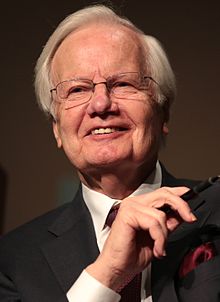
The Corporation for Public Broadcasting (CPB) is an American publicly funded non-profit corporation, created in 1967 to promote and help support public broadcasting. The corporation's mission is to ensure universal access to non-commercial, high-quality content and telecommunications services. It does so by distributing more than 70 percent of its funding to more than 1,400 locally owned public radio and television stations.

National Educational Television (NET) was an American educational broadcast television network owned by the Ford Foundation and later co-owned by the Corporation for Public Broadcasting. It operated from May 16, 1954, to October 4, 1970, and was succeeded by the Public Broadcasting Service (PBS), which has memberships with many television stations that were formerly part of NET.
WNET, branded Thirteen, is a primary PBS member television station licensed to Newark, New Jersey, United States, serving the New York City area. Owned by The WNET Group, it is a sister station to the area's secondary PBS member, Garden City, New York–licensed WLIW, and two class A stations: WMBQ-CD, and WNDT-CD. The WNET Group also operates New Jersey's PBS state network NJ PBS, and the website NJ Spotlight through an outsourcing agreement.
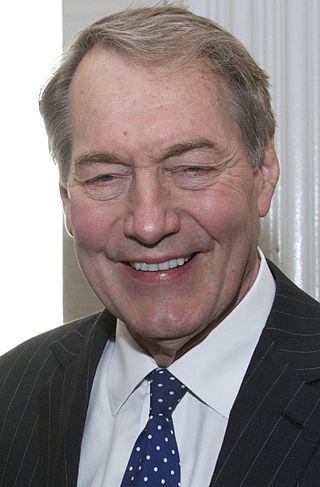
Charles Peete Rose Jr. is an American journalist and talk show host. From 1991 to 2017, he was the host and executive producer of the talk show Charlie Rose on PBS and Bloomberg LP. On the show, he interviewed thinkers, writers, politicians, athletes, entertainers, businesspersons, leaders, scientists, and fellow newsmakers. The show was known for its distinguished stature and intellectual tone.
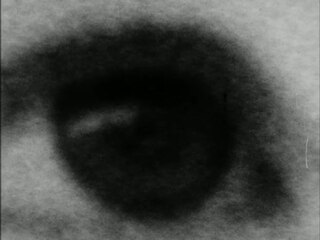
"Daisy", sometimes referred to as "Daisy Girl" or "Peace, Little Girl", was a controversial American political advertisement that aired on television as part of Lyndon B. Johnson's 1964 presidential campaign. Though aired only once, it is considered one of the most important factors in Johnson's landslide victory over the Republican Party's candidate, Barry Goldwater, and a turning point in political and advertising history. A partnership between the Doyle Dane Bernbach agency and Tony Schwartz, the "Daisy" advertisement was designed to broadcast Johnson's anti-war and anti-nuclear positions. Goldwater was against the Nuclear Test Ban Treaty and suggested the use of nuclear weapons in the Vietnam War, if necessary. The Johnson campaign used Goldwater's speeches to imply he would wage a nuclear war.

Robert Breckenridge Ware MacNeil, often known as Robin MacNeil, was a Canadian-American journalist, writer and television news anchor. He partnered with Jim Lehrer to create the landmark public television news program The Robert MacNeil Report in 1975. MacNeil co-anchored the program until 1995. The show eventually became the MacNeil/Lehrer NewsHour and is today PBS News Hour.

The Power of Myth is a book based on the 1988 PBS documentary Joseph Campbell and the Power of Myth. The documentary was originally broadcast as six one-hour conversations between mythologist Joseph Campbell (1904–1987) and journalist Bill Moyers. It remains one of the most popular series in the history of American public television.
Now on PBS, shown onscreen as NOW, is a Public Broadcasting Service newsmagazine which aired between 2002 and 2010, focusing on social and political issues.

Diane Rehm is an American journalist and the host of Diane Rehm: On My Mind podcast, produced at WAMU, which is licensed to American University in Washington, D.C.. She also hosts a monthly book club series, Diane Rehm Book Club, at WAMU. Rehm is the former American public radio talk show host of The Diane Rehm Show, which was distributed nationally and internationally by National Public Radio. The show was produced at WAMU.
Kenneth Y. Tomlinson was an editor at Reader's Digest and American government official. He was also chairman of the Broadcasting Board of Governors, which manages Voice of America radio, and Chairman of the Board of the Corporation for Public Broadcasting, which manages funds appropriated by Congress in support of public television and radio. According to The New York Times, there was an inquiry concerning possible misuse of federal money by Tomlinson. Investigators at the Corporation for Public Broadcasting said on November 15, 2005, "that they had uncovered evidence that its former chairman had repeatedly broken federal law and the organization's own regulations in a campaign to combat what he saw as liberal bias". According to The New York Times, U.S. State Department investigators determined in 2006 that he had "used his office to run a 'horse racing operation'," that he "improperly put a friend on the payroll", that he "repeatedly used government employees to perform personal errands", and that he "billed the government for more days of work than the rules permit".

The Public Broadcasting Act of 1967 issued the congressional corporate charter for the Corporation for Public Broadcasting (CPB), a private nonprofit corporation funded by taxpayers to disburse grants to public broadcasters in the United States. The act was supported by many prominent Americans, including Fred Rogers, NPR founder and creator of All Things Considered Robert Conley, and Senator John O. Pastore of Rhode Island, then chairman of the Senate Subcommittee on Communications, during House and United States Senate hearings in 1967.

Fulton Lewis Jr. was a conservative American radio broadcaster from the 1930s to the 1960s.

Patricia de Stacy Harrison is an American public relations executive and government official, currently serving as president and chief executive officer of the Corporation for Public Broadcasting, a non-profit established by the federal government to support public radio and television broadcasting.
Avivah Gottlieb Zornberg is a Scottish contemporary Torah scholar and author.
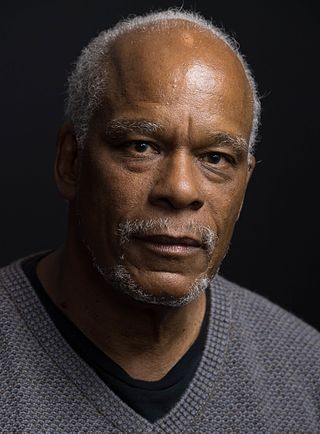
Stanley Earl Nelson Jr. is an American documentary filmmaker and a MacArthur Fellow known as a director, writer and producer of documentaries examining African-American history and experiences. He is a recipient of the 2013 National Humanities Medal from President Obama. He has won three Primetime Emmy Awards.
James Day was an American public television station and network executive and on-air interviewer, and professor of television broadcasting at Brooklyn College. Day was a co-founder, and the founding president and general manager, of pioneer San Francisco public television station KQED, and in 1969 became the final president of National Educational Television (NET) before it closed operations in 1970, making way for its successor, the Public Broadcasting Service (PBS). Day then became general manager of NET's now-former flagship, New York PBS member station WNET. Day was an original PBS board member, and was also a founding board member of the Children's Television Workshop, creators and producers of Sesame Street, which quickly became a flagship children's program for public television.
Victor "Vic" Gold was an American journalist, author, and Republican political consultant. Gold began his career as a lawyer and advisor to the Democratic Party in Alabama before switching to the Republican Party. He worked as deputy press secretary for Senator Barry Goldwater during the 1964 presidential election and press secretary for Vice President Spiro T. Agnew from 1970 to 1973.

The Public Broadcasting Service (PBS) is an American public broadcaster and non-commercial, free-to-air television network based in Arlington, Virginia. PBS is a publicly funded nonprofit organization and the most prominent provider of educational programs to public television stations in the United States, distributing shows such as Frontline, Nova, PBS News Hour, Masterpiece, Sesame Street, This Old House and American Experience. Certain stations also provide service to Canada.

Moyers & Company was a commentary and interview television show hosted by Bill Moyers, and broadcast via syndication on public television stations in the United States. The weekly show covered current affairs affecting everyday Americans, and featured extended conversations with guests on issues of the day. It premiered on January 13, 2012, and concluded on January 2, 2015.
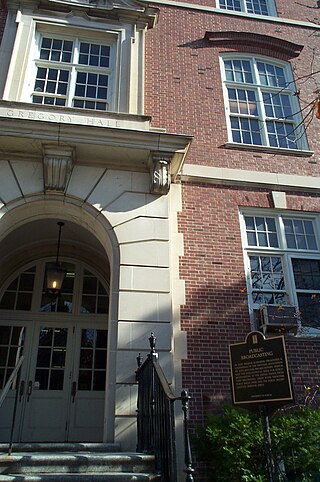
In the United States, other than a few direct services, public broadcasting is almost entirely decentralized and is not operated by the government, but does receive some government support.
